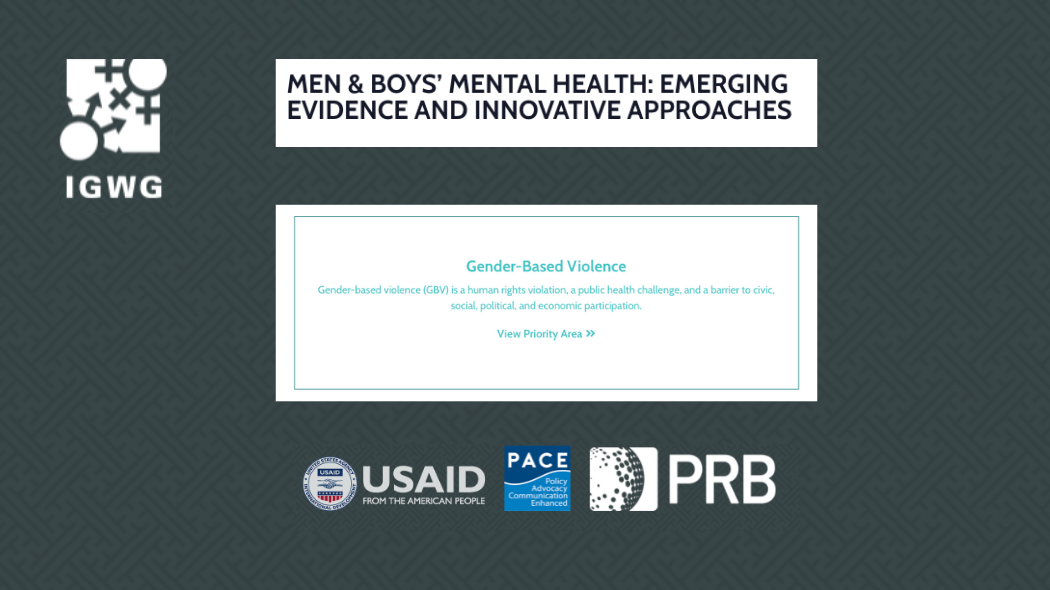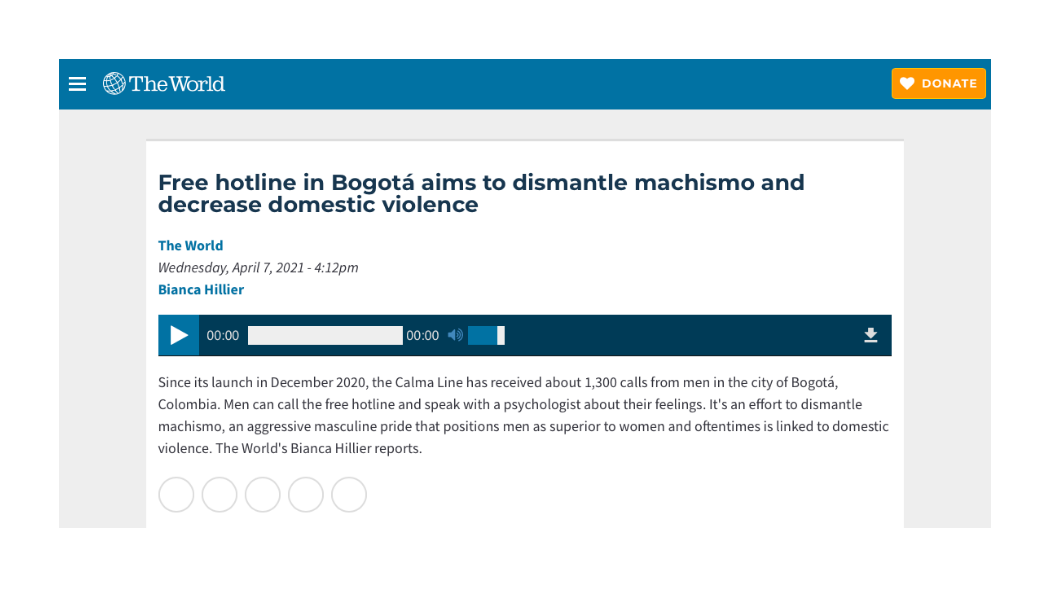On June 2, 2021, the Under Secretary for Civic Culture Culture and Knowledge Management of the Secretariat of Culture, Recreation and Sports in the city of Bogotá was invited to participate as a panellist in “Men & Boys' Mental Health: Emerging Evidence and Innovative Approaches." An event organized by the "Men-Engagement Task Force" on behalf of the "Interagency Gender Working Group" (IGWG). The focus of which is to discuss issues of alternative masculinities across various different countries such as: Tanzania, Republic of the Congo, United States, Colombia, Mexico, Argentina, Costa Rica, to name a few.
This network is comprised of international development organizations, the global health division of the United States Agency for International Development (USAID), and the John Hopkins University in Baltimore (USA), among others. Whose prerogative is to advocate the importance of linking men and boys in the promotion of health and gender equality.
At the event, María Fernanda Cepeda, leader in the field of Gender and Diversity in Bogotá, presented the ‘Calma’ strategy. An open space for dialogue and psycho-educational care for men over 18 in Bogotá. This hotline, launched in December 2020 - and since has answered a total of 1,139 calls made by men seeking help - was presented as a success story. Initiatives like this are actively contributing to society by changing certain stereotypes and stigma that revolve around machismo. This is done by unlearning toxic masculinity and tending to the emotional and psycho-educational care that can in many cases prevent domestic violence by allowing men access to a place of community and growth.
The event was attended by approximately 200 people and various organisations such as the ‘Population Council,’ a podcast initiative on men's mental health in Tanzania. They led the panel on conversations covering a wide range of topics from the importance of the relationship between masculinity and mental health to the effects it might have on public health, gender equity, and sexual health.
Statistics show a few interesting trends regarding the impact of the Calma Line:
To date, 1139 calls have been answered.
131 men have participated in the psycho-educational support programme.
636 personalised sessions have been carried out.
81% of men have felt a marked improvement after their sessions.
88% of men have felt that the Line has helped them get more in touch with their emotions.
94% of men would recommend the line to other men.







